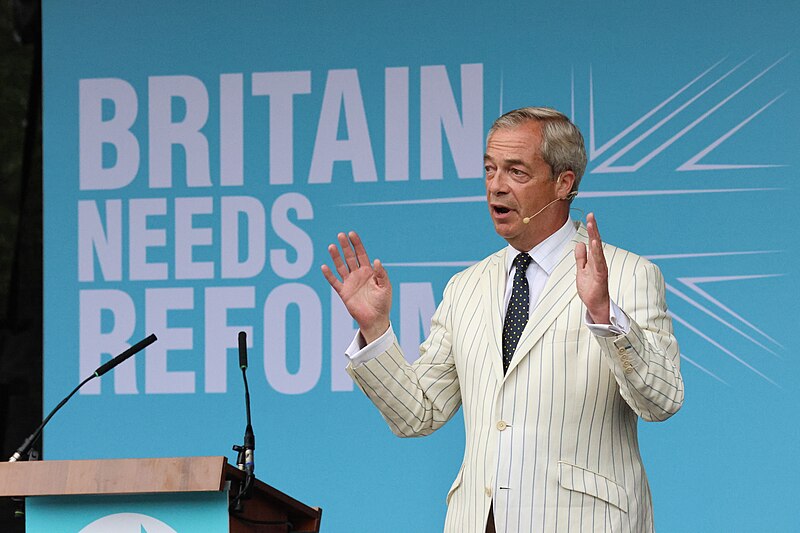
Nigel Farage has announced that Reform UK would introduce major tax and benefit changes aimed at making it easier for people to have children, if the party came to power. In a speech in
central London, the Reform UK leader confirmed plans to scrap the two-child benefit cap and expand tax breaks for married couples.
Farage said the aim of lifting the benefit cap was not to promote a “benefits culture” but to support lower-income families. The cap currently limits means-tested benefits to two children for families with additional children born after April 2017.
He also pledged to reverse cuts to winter fuel payments that have affected around 10 million pensioners, accusing the government of turning its back on older people.
Labour responded critically to Farage’s proposals. Party chairwoman Ellie Reeves dismissed them as “fantasy promises” and compared them to the unfunded tax cuts of former Prime Minister Liz Truss, which were widely blamed for economic turmoil during her short tenure.
Farage’s announcement comes amid growing pressure on the current government from both Conservative and Labour MPs over welfare policies, including disability benefits and the two-child cap. Education Secretary Bridget Phillipson recently acknowledged the government is reviewing the cap, though she noted it would come at significant financial cost.
Labour leader Sir Keir Starmer has also suggested easing cuts to winter fuel payments but has yet to provide specific plans or funding details.
Farage outlined a broader set of Reform UK goals, calling the party’s main fiscal ambition the raising of the income tax threshold to £20,000—up from the current £12,570. He said the party also wants to exempt one partner in a marriage from paying tax on the first £25,000 of their income, in addition to expanding existing marriage tax allowances.
Currently, some married couples can transfer £1,260 of their personal allowance to a higher-earning partner, saving up to £252 annually.
“These proposals are expensive, but we genuinely believe we can pay for them,” Farage said. He outlined potential savings from scrapping net-zero climate policies, ending hotel stays for asylum seekers, eliminating diversity initiatives in the public sector, and cutting the number of publicly funded arms-length bodies known as quangos.
Farage admitted his own personal life hadn’t always aligned with the values he now promotes, noting that he has been divorced twice. Still, he argued that strengthening the institution of marriage would benefit children.
Senior economist Stuart Adam from the Institute for Fiscal Studies warned that raising the income tax threshold to £20,000 could cost between £50 billion and £80 billion annually, depending on the specifics. He said Reform UK has yet to provide a detailed and credible plan for funding such sweeping changes.
“If they want to be taken seriously as a party of government, they’ll eventually need to show how these numbers add up,” Adam said. Photo by Owain.davies, Wikimedia commons.


































